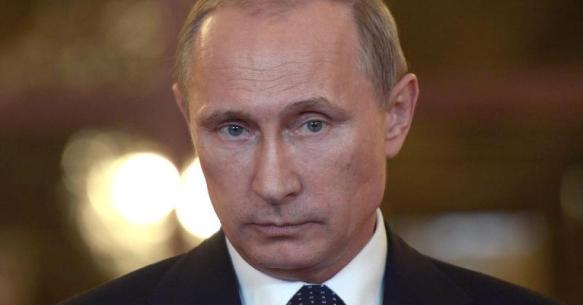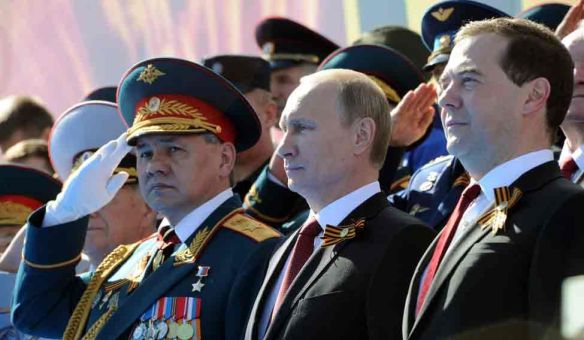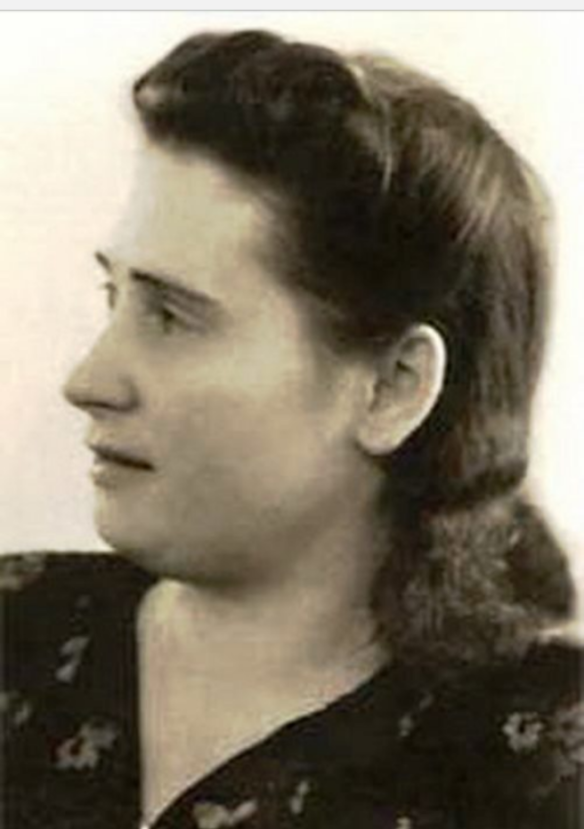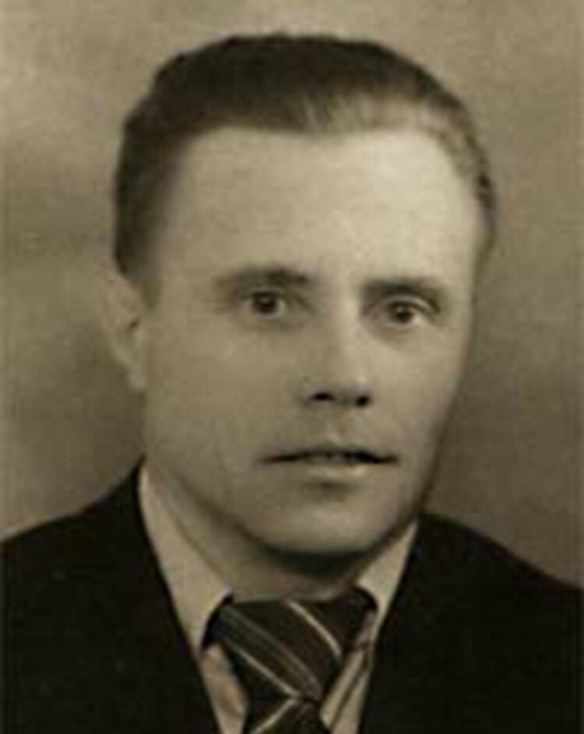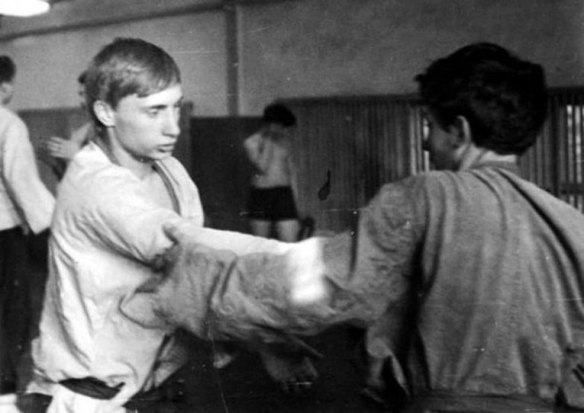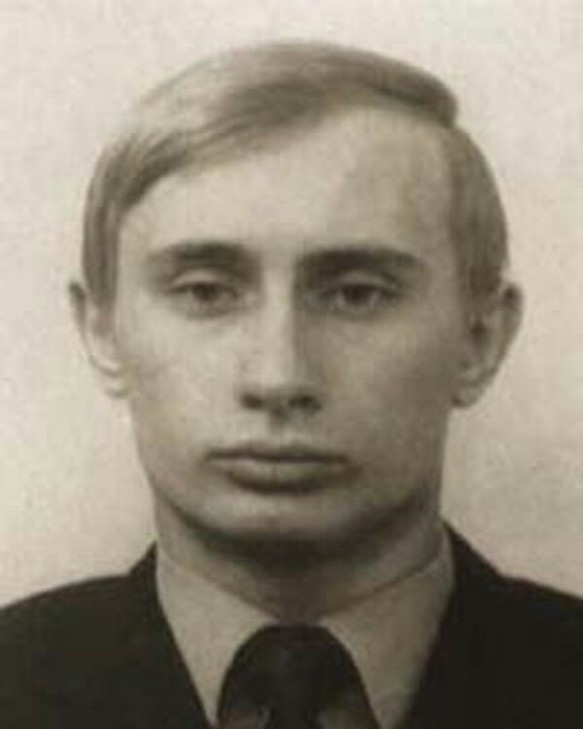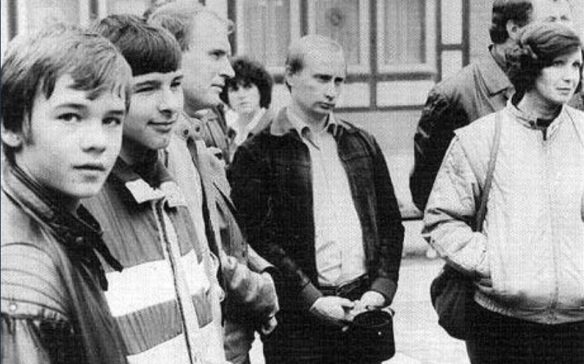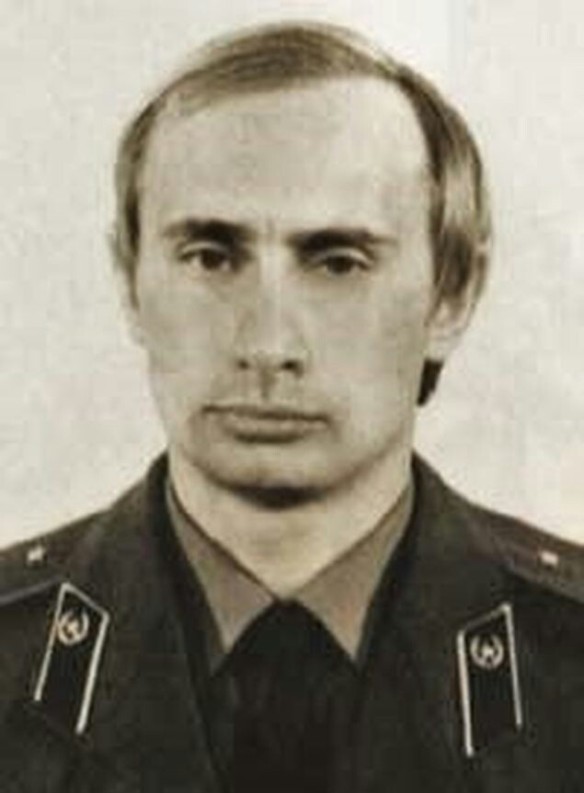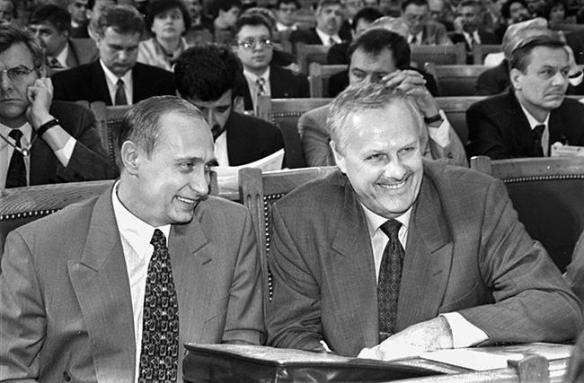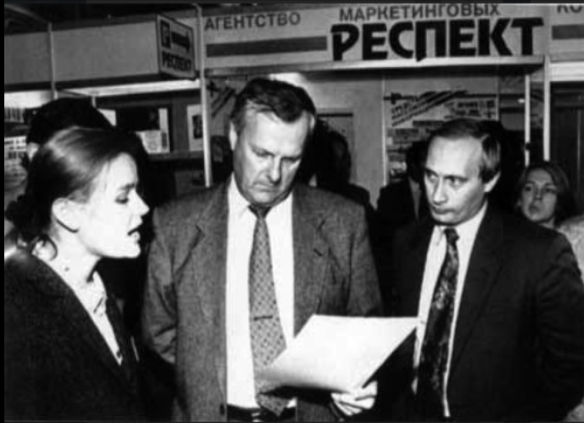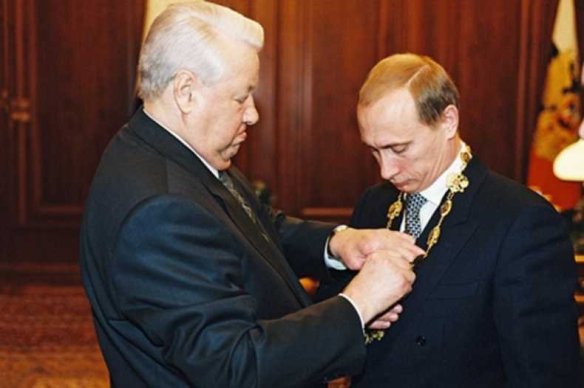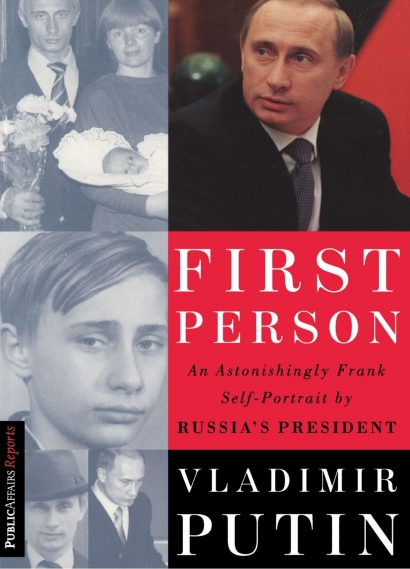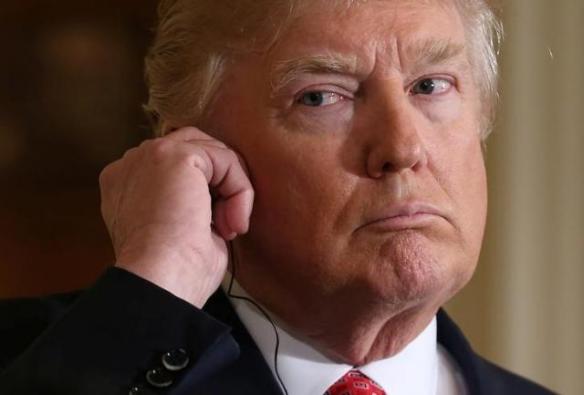 US President Donald Trump (left) and Chinese President Xi Jinping (right). While a tremendous amount of energy and effort is being focused on the coronavirus pandemic crisis in the US and the rest of the world, the Beijing has placed its focus on a cause far less noble. It ignited a confrontation with Washington by making the utterly absurd and impolitic official declaration that the US Army had ignited the COVID-19 virus (the novel coronavirus) while visiting Wuhan, China, and that the virus was developed in a US military laboratory. There was the attendant declaration that use of the terms “Chinese virus” or “Wuhan virus” was racist and xenophobic. By telephone, Trump and Xi offered one another messages of unity in the war against the coronavirus and appear to have resolved the matter. However, given all that was said, greatcharlie feels compelled to look at how Beijing reached its peculiar conclusions and offers a discussion on what it was likely trying to do.
US President Donald Trump (left) and Chinese President Xi Jinping (right). While a tremendous amount of energy and effort is being focused on the coronavirus pandemic crisis in the US and the rest of the world, the Beijing has placed its focus on a cause far less noble. It ignited a confrontation with Washington by making the utterly absurd and impolitic official declaration that the US Army had ignited the COVID-19 virus (the novel coronavirus) while visiting Wuhan, China, and that the virus was developed in a US military laboratory. There was the attendant declaration that use of the terms “Chinese virus” or “Wuhan virus” was racist and xenophobic. By telephone, Trump and Xi offered one another messages of unity in the war against the coronavirus and appear to have resolved the matter. However, given all that was said, greatcharlie feels compelled to look at how Beijing reached its peculiar conclusions and offers a discussion on what it was likely trying to do.
When covering a subject, it is the fervent desire of greatcharlie’s editor to avoid the appearance of flogging a dead horse. To that extent, in approaching the issue of the incredibly false claims by the government of the People’s Republic of China that the US had ignited the COVID-19 virus (the novel coronavirus) in China, it does not want to dredge up what may beginning to settle down. However, the whole episode has been so peculiar, greatcharlie feels compelled to metaphorically take look under the hood. Continuing from what was just briefly mentioned, Beijing instigated the whole row by declaring the US Army while visiting China to participate in the 7th CISM Military World Games in Wuhan in October 2019, well before any reported outbreaks of the coronavirus. Beijing alleged that the virus was developed in a US military laboratory. There was the attendant declaration that calling the coronavirus the “Chinese virus”, “Chinese coronavirus”, or “Wuhan virus” was somehow an expression of racism and xenophobia. No evidence has been shown by any reliable epidemiologist worldwide that the coronavirus originated anywhere but China. Experts believe that the virus emerged from animals sold in a market in Wuhan, where the first cases of the disease were discovered. All of the declarations from Beijing were bizarre, and similiar ones of that sort were made by it afterward. While a tremendous amount of energy and effort in Washington is being focused on the coronavirus crisis in the US and the rest of the world, Beijing has decided to place a considerable portion of its focus and energy on a cause far less noble.
Much has been written and stated about this grave matter in the US news media. After first hearing of Beijing’s claims, US President Donald Trump addressed it from the White House Press Room on March 17, 2020. He adroitly countered Beijing’s declarations by stating: “China was putting out information which was false that our military gave this to them. That was false. And rather than having an argument, I said I had to call it where it came from. It did come from China.” Perhaps greatcharlie is going on a slender by stating Trump’s words were firm but still rather measured. Trump is certainly concerned with the US first and foremost, but while speaking about the matter, he may have had his positive relationship with Chinese President Xi Jinping in mind and may have wanted to keep the door open for conversation with him to sort the matter out if necessary. Since that time Trump stated he would refrain from using the term “Chinese virus” and he had a constructive telephone conversation with Xi concerning the whole matter. A considerable effort has been made by greatcharlie in it’s posts to alert foreign capitals to the pitfalls of following false information from Trump’s political adversaries in the US who have from his first year in office minus one have sought to thoroughly distort the picture of his team’s good work and accomplishments. In this particular case, China, a highly-developed, industrialized economic power, has chosen to amplify the attitudes and behavior of Trump adversaries.
Thomas Paine, 18th Century American political writer, theorist, and activist (of the American Revolution), wrote in his work, The Crisis No. V: To argue with a man who has renounced the use and authority of reason, and whose philosophy consists in holding humanity in contempt, is like administering medicine to the dead, or endeavoring to convert an atheist by scripture. Although it finds the perspective on the coronavirus proffered by its senior officials in Beijing objectionable, the goal of greatcharlie here is not to argue against it but simply to offer its own perspective of what Beijing was likely attempting to do. Admittedly, China is not really greatcharlie’s patch. Nevertheless, in an effort to better this matter, greatcharlie takes a deeper dive into what Beijing is doing, what is the thinking of its leadership, and why it is fervently hoped its current behavior will stop and will be avoided in the future. Quis nescit, primam esse historiæ legem, ne quid falsi dicere audeat?; deinde ne quid veri non audeat? (Who does not know that is the first rule of history not to dare to say anything that is false?; and, the second not to dare to say anything that is not true?)
Leaders of the Communist Party of China at plenum (above). It does not feel as if greatcharlie is going out on shaky ground to state that there is a cultural angle by which Beijing can be imagined struggling to cope with a presumed loss of face, a sense of shame and embarrassment, for being unable to respond adequately and in a sure-footed way to the medical crisis. One could also imagine that the leadership of the Communist Party of China believed a torrent of precautions against the coronavirus would exceed the dangers to be avoided. They abandoned the Chinese people to destiny. Left with their egos hurt, and feeling angered and self-conscious about their country’s situation, some among the leadership of the Communist Party of China, amidst all that was transpiring, rather than sit maudlin, likely decided to use the country’s foreign policy apparatus to inappropriately lash out.
An Act of Daylight Madness by Beijing
Once an agrarian country dominated for centuries by foreign powers, China has since the end of World War II has reached amazing heights. Confident and competent, China today is an economic superpower. It has achieved tremendous scientific advances, has sent satellites and probes into far space and is gearing up its space program to meet the challenge of sending a crew to the Moon and return it home safely. China undoubtedly believes it has impressed the world with its achievements. Indeed, it has been extolled by many in the world for its great strides. However, likely sensing the world looking over its shoulder with a mix of disapprobation and commiseration at the unsteady handling of its coronavirus epidemic as the death toll in its country rose, it did not feel so sure, nay feared, that it was not holding its own as scientific powerhouse and engine of scientific advancements. It is difficult to say with certainty how the same proud, mature, self-confident, self-assured leadership of China got to the point in which it decided to ascribe culpability for the spread of the coronavirus to the US. Perhaps the place to look to understand how Beijing feels about this whole coronavirus matter is the Communist Party of China.
Indeed, what the Communist Party of China feels and says about any matter in China is always of great consequence. In spite of all that could be stated about China being an advanced and leading industrialized power, it functions under the rule of a one party, authoritarian system. The Communist Party of China would insist that from leadership, wisdom radiates in all directions. There are eight other, subordinated political parties that are allowed to exist and they form what has been dubbed the United Front. The Chinese government, itself, functions under a people’s congress system, taking the form of what is called the National People’s Congress. The National People’s Congress exercises the state power of amending the Constitution and supervising the enforcement of the Constitution; enacts basic laws of the state; elects and decides on the choices of the leading personnel of the highest state organs of China, including the President and Vice President, the choice of the Premier of the State Council and other component members of the State Council; elects the Chairman of the Central Military Commission and decide on the choice of other component members of the Central Military Commission; elects the President of the Supreme People’s Court and the Procurator-General of the Supreme People’s Procuratorate; examines and approves the plan for national economic and social development and the report on its implementation; examines and approves the state budget and the report on its implementation; and make decisions on other important issues in national life. The National People’s Congress is elected for a term of five years. It meets in session during the first quarter each year and is convened by the National People’s Congress Standing Committee. In accord withbwhat was earlier explained, it is leadership is composed of leaders from Communist Party of China. As for the leadership of the Communist Party of China, it is divided among a number of elite bodies. The 370 member Central Committee of the Communist Party of China is the largest. The Political Bureau of the Communist Party of China Central Committee, or Central Politburo of the Communist Party of China, is a 25 member group of leaders elected by the Central Committee that actually overseas the larger party. Within the Politburo, power is centralized in the smaller Politburo Standing Committee selected by current Politiburo and retired Politiburo Standing Committee members. The day-by-day operations of both the Politburo and its Standing Committee are executed by the Central Secretariat of the Communist Party of China. The Secretariat can even make decisions on how to carry out tasks set by both organizations, consulting them when necessary. All important to the Communist Party of China is upholding and perfecting the system of socialism with Chinese characteristics and the promotion of the modernization of state governance. Socialism with Chinese characteristics refers to the fact that the country’s economy largely follows the principle of a market economy while being Communist in name. The Communist Party of China believes it has provided clear direction for its country and a path for vigorous development. Although maintaining lasting peace and stability is also stated focus, the Communist Party of China believes its country moves closer everyday to a time when it will be the world’s dominant power. When the Communist Party of China causes citizens any suffering through its leaders decisions, it will without empathy, chalk the matter up as being necessary for the greater good, for the sake of the Communist Revolution. Ensuring the population’s adherence to the strictures of the Communist government is a function of its security services. The People’s Liberation Army, the world’s largest military forces, often performs ancillary functions for the security services. From almost day one of the Communist government, there has been an insistence that a watchful eye needed to be kept over threats to the system. It was understood that the reactionary, the counterrevolutionary, most often “hiding in the shadows,” posed the greatest threat and was viewed as anathema. The response had to be strong enough to match “the severity of the disease.” It was in the performance of that mission that the Chinese government has earned a reputation among many worldwide for being an oppressive, authoritarian regime.
It does not feel as if greatcharlie is going out on shaky ground to state that there is a cultural angle by which Chinese can be imagined struggling to cope with a presumed loss of face, a sense of shame and embarrassment, for being unable to respond adequately and in a sure-footed way to the medical crisis. One could also imagine that the leadership of the Communist Party of China believed a torrent of precautions against the coronavirus would exceed the dangers to be avoided. They abandoned the Chinese people to destiny. Left with their egos hurt, and feeling angered and self-conscious about their country’s situation, some among the leadership of the Communist Party of China, amidst all that was transpiring, rather than sit maudlin, likely decided to use the country’s foreign policy apparatus to inappropriately lash out.
The coronavirus spread from Wuhan, China, in late December 2019 according to available evidence. The New York Times on March 13, 2020 reported that scientists have not yet identified a “patient zero” or a precise source of the virus, though preliminary studies have linked it to a virus in bats that passed through another mammal before infecting humans. A senior official from China’s National Health Commission, Liang Wannian, proffered the idea at a briefing in Beijing in February 2020 that the likely carrier was a pangolin, an endangered species that is trafficked almost exclusively to China for its meat and for its scales, which are prized for use in traditional medicine. The first clustering of patients was recorded at the Huanan Seafood Wholesale Market, and studies have since suggested that the virus could have been introduced there by someone already infected. The overwhelming amount of cases and deaths have been in Wuhan and the surrounding province of Hubei. Reportedly, Li Wenliang, a Wuhan doctor, tried to raise alarm about the coronavirus outbreak, was targeted by police in an effort to silence him. He has since succumbed to the coronavirus. Another Wuhan doctor, who was immersed in the battle against the coronavirus and tried to sound the alarm as to the magnitude of the threat, has reportedly disappeared.
Chinese state media has generally praised Beijing’s efforts in containing the virus. On March 17, 2020, a China Daily editorial stated that the world should learn from China’s example in aggressively quarantining and detecting the virus. Yet, At the height of the outbreak in China, local governments were reportedly criticized for excessive measures and lack of supplies and capacity. However, those who closely follow online social media noticed numerous conspiracy stories were emanating from China spreading falsehoods including the idea that the coronavirus might have been brought in by US military athletes who visited Wuhan to participate in the 7th CISM Military World Games, which opened on October 17, 2019 and closed on October 27, 2019. Coronavirus was being labelled by those sources as an “American disease.” Those conspiracy theories were continously recirculated on China’s tightly controlled internet. There is not a shred of evidence to support that, but the notion received an official endorsement from China’s Ministry of Foreign Affairs, whose spokesman accused American officials of not coming clean about what they know about the disease. Then, the disinformation was suddenly being spread from official sources such as a series of posts on Twitter by Zhao Lijian, the Director of the Information Department of China’s Ministry of Foreign Affairs and its top spokesperson. In a now famous tweet from @zlj517 on March 12, 2000, at 10:37 AM, Zhao wrote: “2 CDC was caught on the spot. When did patient zero begin in US? How many people are infected? What are the names of the hospitals? It might be US army who brought the epidemic to Wuhan. Be transparent! Make public your data! US owe us an explanation!” For Zhao, his exertions could hardly have been morally invigorating as he would certainly have known full well, and as aforementioned, that all credible experts believe the coronavirus originated in a wet food market in Wuhan, China, where it was likely passed from different animals until a host carrying the disease transferred it to a human. Zhao who has a reputation for making use of Twitter, though the platform is blocked in China by the government, to push what some policy analysts call Beijing’s new aggressive, hawkish, diplomatic strategy. Yet, in this “campaign” Zhao surpassed himself. Zhao took the posture of a positive serpent. Other senior officials of the government comporting themselves publicly when discussing the coronavirus epodemic did so with an astringency which some regime critics would say uncloaked the true nature of the regime. Lin Songtian, China’s ambassador to South Africa also tweeted that the virus might not have originated in China. Fallacia alia aliam trudit. (One falsehood thrusts aside another.( i.e., leads to more))
After giving an address on March 16, 2020, warning of a possible recession, the US president posted from @realDonaldTrump on March 17, 2020 at 12:16AM on Twitter: “The United States will be powerfully supporting those industries, like Airlines and others, that are particularly affected by the Chinese Virus. We will be stronger than ever before!” Chinese officials took a similar acidic approach to Trump’s reference of the pandemic as the “Chinese virus.” Zhao’s colleague, Geng Shuang, deputy director of the Chinese Ministry of Foreign Affairs Information Department, at a press briefing in Beijing on March 17, 2020, stated: “Some US politicians have tried to stigmatise China … which China strongly condemns.” He went further to explain: “We urge the US to stop this despicable practice. We are very angry and strongly oppose it [the tweet].” When asked if comments such as his and Zhao’s reflected Beijing’s official views on the virus, reportedly he did not directly comment. Instead, he replied: “The international community, including the US, have different opinions about the origin of the virus,” he told the Reuters press agency, adding that the origin of the virus was a scientific matter and as such, scientific views should be listened to. (Perhaps there would be a need to twist his tail to force him to mimic the obloquy of his colleagues.) Then the superior of Geng and Zhao at the Information Department of the Ministry of Foreign Affairs, its director Hua Chunying, sent out a tweet amplifying, with a bit more vigor, Geng’s line of argument. He included a link to a video clip that included the director of the US Centers for Disease Control, Robert Redfield stating on March 17, 2020 that it was wrong to refer to the coronavirus as a “Chinese coronavirus,” noting while it first emerged in China it has since severely impacted countries such as South Korea and Italy. Hua’s tweet from @SpokespersonCHN on March 12, 2020 at 3:26AM was the following: “@CDCDirector Dr. Robert Redfield: Some cases that were previously diagnosed as Flu in the US were actually #COVID19. It is absolutely WRONG and INAPPROPRIATE to call this the Chinese coronavirus. https://www.c-span.org/video/?c4860650/user-clip-diagnosed-flu-covid-19 …”
One could call what Beijing was doing as diplomacy after a fashion. Yet, certainly it is diplomacy conducted in an unsatisfactory way. On the coronavirus matter, Beijing appears to have little interest in holding themselves to what generally might be understood to be higher standards international statesmanship. Going directly to the source of Chinese power, US Secretary of State Mike Pompeo issued “strong US objections” in a telephone conversation with Yang Jiechi, director of the Office of Foreign Affairs of the Communist Party of China. CCTV, Chinese state television, reported that Yang also issued “strong objections” to attempts by the US to “slander and smear” China’s efforts in combatting the virus. That unfortunate response from a key Communist Party of China official was quite telling. With the exception of the two national leaders, Beijing at almost every level was all over Washington, and in turn, Washington, at nearly all senior levels, was all over Beijing.
What is quite troubling was the way Beijing’s effort smacked of provocative efforts during a previous era of a geopolitical struggle between East and West, Communism versus Capitalism. There was a paranoia that eventually hardened both East and West, seemingly giving rise to intractable negative beliefs and harsh convictions of each side’s respective intentions. One would have hoped that era was dead. It would seem that in the minds of some in Beijing, particularly among the leadership of the Communist Party of China, that era is still very much alive. To that extent, a defacto bigotry toward the US appears to exist in the thinking among a number of them.
Other than an eventual good telephone call between Trump and Xi, the only bright spot in the middle all that has occurred was comments made by the Chinese Ambassador to the US Cui Tiankai about the anti-US declarations from Beijing. Reportedly , Cui told the news program “Axios on HBO” that he stands by his belief that it’s “crazy” to spread rumors about the coronavirus originating from a military laboratory in the US. Cui even called this exact conspiracy theory “crazy” more than a month ago on the CBS News program, “Face the Nation.” well before the spokesperson for the Chinese Ministry of Foreign Affairs first began publicly promoting the conspiracy. It would seem that true professionals in the Chinese government would prefer to stick with the primary problem instead of rooting around extraneous matters and bizarre claims. Cui apparently holds firmly to the belief that good diplomacy among advanced industrialized societies, to preserve peace and security, must not exceed what is decent.
Zhao Lijian (above), deputy director of the Information Department of the Chinese Ministry of Foreign Affairs. One could call what Beijing was doing with its impolitic declarations about the US as diplomacy after a fashion. Yet, certainly it is diplomacy conducted in an unsatisfactory way. On the coronavirus matter, Beijing appears to have little interest in holding themselves to what generally might be understood to be higher standards international statesmanship. With the exception of the two national leaders, Beijing at almost every level was all over Washington, and in turn, Washington, at nearly all senior levels, was all over Beijing. What has been quite troubling was the way Beijing’s effort smacked of provocative efforts during a previous era of a geopolitical struggle between East and West, Communism versus Capitalism.
A Possible Political Warfare Strategem
What Beijing has expressed may very well be a projection of its disappointment with itself. Knowingly speaking vaguely, it is not hard to imagine leaders in Beijing, particularly within the Communist Party of China, smouldering over the embarrassing reality that the coronavirus pandemic was due to their incompetence. It was not something embarrassing that could be hidden away. The resulting choice for Beijing, not to behave as a good player on the international stage, was the wrong one. Looking upon the matter of Beijing’s declarations with more discerning eyes, it cannot be ruled out that the leadership there has done more than simply green lighted some unconstructive propaganda by the senior members of the foreign ministry. The implications and indications are that their declarations have most likely been part of a greater political warfare stratagem.
Male cuncta ministrat impetus. (Anger manages everything badly.) Beijing’s nose has certainly being put out of joint. If greatcharlie’s supposition that Beijing had launched a political warfare attack is valid, its primary purpose would be getting the rest of the world to tear the Chinese name off of the virus was part of a larger effort to conceal the fact that the virus had any connection to China and save face after an absolutely failure to respond to it appropriately and contain it. Indeed, throwing the yoke of embarrassment off China’s shoulders would mean everything to its leadership. It would no longer be the cause for so much torment and anguish worldwide. It would no longer be the scapegoat for the pandemic. In an eccentric way of thinking, Beijing may have seen this tact as a way to make amends for quite a failure. With seemingly little hesitation, they apparently chose to threaten the civilized order. Their minds were confined to what has already transpired and unwilling to open to the potential of the future. It would seem, much as it has been said by the many who have suffered its wrath and by those foreign journalists and scholars who have closely oberved it in action, the voice of deception and hypocrisy lingers in China via the Communist Party.
In an April 30, 2018 greatcharlie post entitled, “US-Led Military Strikes in Syria Were a Success: Was a Correlative Political Warfare Success Achieved, Too?”, the features of a political warfare effort were outlined. It was noted by greatcharlie that political warfare consists of the international use of one or more of the implements of power–diplomatic, information, military, and economic–to affect the political composition of decision making within a state. Citing Brian Jenkins, a renowned security affairs analyst at RAND, the post explained that political warfare reverses the famous dictum of the 19th century Prussian military theorist Carl von Clausewitz that “war is the extension of politics by other means,” as political warfare is really the extension of armed conflict by other means. It could take the form of the following: economic subversion; propaganda–not tied to a military effort; psychological warfare–as part of a military effort; conditional aid to a state; aid to political parties; aid to resistance groups; political accommodation; and, even assassination. Those engaged in political warfare perceive an opposing side not as a monolithic force, but as a dynamic population of individuals whose grievances, sense of humiliation, and desire for revenge, honor, status, meaning, or mere adventure could propel them to resistance. Political warfare recognizes that usually members of the opposing side are constantly calibrating and recalibrating their commitment. It sees every member of the opposing side as a potential convert. Many of these features are readily discernible in Beijing’s effort.
Likely Hopes in Beijing for Its Possible Political warfare Attack
One might believe that it would be a risky leap of faith to attempt to include the mighty US on the list of the league of countries and peoples who have been targeted by Beijing’s disinformation campaigns focused on concealing its own misdeeds. Included on a short list of ongoing targets of such deception would be the Uhigars of China, the people of Tibet, the people of Hong Kong, Taiwan (officially the Republic of China), Vietnam, and South Korea.
Trying to manipulate thinking and events the US, however, would not at all be an alien concept. Along with the Russian Federation, China also was detected meddling in 2016 US Presidential Election. This fact has been highlighted by Trump’s adversaries in the US for their own varied purposes. In fact, it was perhaps viewed as a low risk. To that extent, within the Communist Party of China, the operation very likely made plenty of sense from certain perspectives. The attack would be launched from China. Since physical courage would not be required, they would likely flatter their own egos by displaying the political courage to act in such a way. Beijing likely believed that they had superior operational awareness. They felt they knew terrain and all of the actors on the other side. They likely felt confident that they could make profound use of detailed all source intelligence concerning the US. Having reviewed endless reports and commentaries produced by Trump’s adversaries that were already calling him racist and xenophobic for saying the Coronavirus was from China, and calling it the “Wuhan Virus”, and observing them try to tie the word racist to his tail in general, was surely encouraging in Beijing. The know-how was in their possession through specially trained personnel in political warfare units in their intelligence services and perhaps even in the Communist Party of China itself. Whether the political warfare attack came to the personal attention of Xi himself is uncertain. Considering his likely desire to preserve his line of communication and relatively good relations with Trump, Xi would probably find the presumed political warfare operation too rich for his blood. He would also likely have intuited that it would all become an untidy situation in the end.
An likely important goal of Beijing’s political warfare campaign would be to exploit individual weaknesses in the US on a large scale. The focal points surely woukd be the feelings, sensibilities and sentiments of those unable to find assurance and security in what has been done by the US President so far. Without question, Beijing targetted Trump’s adversaries, particularly anti-Trump members of the US news media. Those members of the US public who were bewildered by all the news about the coronavirus and ambivalent about what was being done in response were also likely primary targets of the attack. With proper measure, Beijing believed it would chip away at reality and replace it with the false reality it had constructed. The key would remain getting the US public and the people of the world to accept what it was saying. Beijing apparently believed that faith would be out into its words and that there was a considerable lack of faith in Trump and the US government both in the US and in the rest of the world.
Xi (center) at ceremony with Communist Party of China’s leadership. What Beijing has expressed through its impolitic declarations about the US may very well be a projection of its disappointment with itself. It is not hard to imagine leaders in Beijing, particularly within the Communist Party of China, smouldering over the embarrassing reality that the coronavirus pandemic was due to their incompetence. The resulting choice for Beijing, not to behave as a good player on the international stage, was the wrong one. It cannot be ruled out that the leadership there has done more than simply green lighted some unconstructive propaganda by the senior members of the foreign ministry. The declarations may have been part of a greater political warfare stratagem. Whether the presumed political warfare attack came to the personal attention of Xi himself is uncertain. Considering his likely desire to preserve his line of communication and relatively good relations with Trump, Xi would probably find such an operation too rich for his blood and intuited that it would all become an untidy situation in the end.
Targeting the US News Media
In Book II of his masterwork, Paradise Lost (1667), the great 17th century English poet and intellectual, John Milton, wrote: “But all was false and hollow; though his tongue Dropp’d manna, and could make the worse appear The better reason, 4 to perplex and dash Maturest counsels.” As adversaries of Trump, the rhetoric of the US news media has only been second in virulence to the utterances of some political adversaries in the opposition Democratic Party. On list of Trump’s adversaries, however, there is a far larger group to include: academics; think tank scholars, other policy analysts; political pundits on television, radio, print media, and online; former senior members of the previous administration of US President Barack Obama; television personalities; and, Hollywood celebrities. For whatever reason, they have some inextinguishable, inexhaustible need to injure Trump. They are all absolutely comfortable with expressing the most fanatical rebukes possible as opposed to constructive criticisms.
One should be under no illusion concerning an extreme dislike of Trump in the US news media. From the first days of the Trump administration, there has been an “us-them” approach taken by the majority of the US news media toward anything it does. Reporters and pundits in the broadcast media have gone beyond the point of being gadflies. Primacy is given to an effort to shape the thinking of the public against Trump, as well as provoke the US President, with daily stories that harshly criticize him, gainsay his administration’s decisions and actions, and chastises administration personnel from senior advisers to middle level staff. Opportunities to make platitudinous objections to Trump are never missed. Words used are beyond hostile and aggressive. The distance that many journalists are willing to travel away from past norms is unknown. Into the second year of his first term in office, the news media remains all Trump, all the time. Journalists discuss hypotheticals sometimes with only a tenuous connection with the realities of ongoing events rather than informing the US public of facts from solid reporting and analysis based on studied patterns of decision making. The facts offered are more often bleached to the point of being superficial. Deeper dives into facts are avoided, and gaps are filled with opinions. Journalists will even seek to capitalize on Trump’s criticism of their stories whenever he decides to get involved with them. It is puzzling how for so long in the US news media has raged a fever in their blood. The reason for their commitment to such anger and aggression has begun to appear demonically inspired from Hell.
As noted by greatcharlie in its February 25, 2020 post entitled, “Commentary: With the Impeachment Results In, Foreign Capitals Can See Clearer How Their Relations with Washington Add Up”, foreign capitals able to discern the angry and hateful language of Trump’s adversaries for what it was, have managed to establish good relations with his administration and to reach new, balanced agreements with US over the past three years. Their respective leaders have enjoyed good person-to-person communications with Trump. Economic improvement, growth, and a greater sense of hope in their own countries can be seen.
A trove of information could be found in open source reporting from the US news media for those foreign capitals bent on promoting odious ideas about Trump and his administration. Clearly, Beijing stands alongside those foreign capitals willing to take that path. Its worst opinions about the Trump administration and the US were surely satisfied via that stream of information. However, what Beijing has done goes beyond just rereporting useful negative information from US sources. Doubtlessly watching carefully how members of the US news media and Trump’s adversaries would grab at essentially any morsel to attack him, made use of that penchant. Indeed, Beijing likely calculated that Trump’s adversaries would not be able to resist its statements about alleged US Army activities in Wuhan, which they of course would conclude Trump ordered. Declarations that Trump was racist and xenophobic for using the terms Chinese coronavirus and Wuhan virus was figurative catnip for them. Suffice it to say that many, true to form, picked the figurative low hanging fruit and have continued to grab what has been dangled before them. Conference rooms of US news media outlets were likely set ablaze over talk about the statements. Almost immediately, the false statements from Beijing were found in broadcasts, online sources, and print media. Upon learning what has very likely transpired, however, one should hardly expect anti-Trump members of the US news media to assume a virtue.
Targeting the Bewildered and Ambivalent in the US
Decipit frons prima multos, rara mens intelligit quod interiore condidit cura angulo.
(The first appearance deceives many, our understandings rarely reach to that which has been carefully deposed in the innermost recesses of the mind.) Targeting the feelings and sensibilities of those in the US public who are unsure of what is what during the coronavirus would make good sense from an adversary’s perspective. At best, under ordinary circumstances, such declarations by Chinese officials would not overly concern the US public. It would most likely sound much as a conspiracy theory by those who might ponder it. Some perhaps harboring negative impressions of Trump has performed might leap to use the nonsense proffered from Beijing to support their worst impressions. Many were led by the nose during the Impeachment debacle in the US Congress, the claims of what the Investigation of Special Counsel Robert Mueller would find regarding Trump’s alleged ties to the Russian Federation Government, and absolute farce that Trump was a Russian Federation spy. Some who might find difficulty recognizing the good intentions of the Trump administration due to unique preconceptions on how it operating might find it easy to fold what was declared from Beijing into their own sense of the bigger, uglier picture of the what the administration is all about. The overwhelming and baffling nature of it all might cause some to believe it serves as evidence that elements of the secret world have been at it again. Those judgments most likely would be based almost exclusively upon what has been produced in Hollywood about US intelligence services. Hollywood’s version, of course, was created as a commercial amusement and never intended to inform viewers of the realities of the intelligence business.
Although their behavior may be condemned by the informed, more astute, self-assured, perhaps those bewildered and ambivalent members of the US public who may have fallen prey to the disinformation generated by Beijing should not be hastily, or too harshly judged. There is always the chance that the Information one might receive about a matter could be false, a deception, fraud. Yet, tell anyone anything and up9n immediate impression, it will likely arouse some feeling. If it is tragic information about someone, the feelings can be sorrow, pain, sympathy, and regret. If it is good news it can lead to feelings of satisfaction, happiness, joy, and pleasure. If information is bad it can create resentment and anger. Feelings of anger when stirred by information, even if it is false, can also lead to hostility and violence. If one is willing to act solely on feelings, one cannot hardly be certain if the facts are true and feelings are warranted. Given the intensity of feelings one might manifest about information, one, without really giving it a thought, might simply accept that the truth is already in ones possession. One’s impressions about a source can also lead one to make that determination that enough proof exists. Yet, only to the limits of one’s knowledge and trust of the source can be one certain that they have the truth. Over time, the impulse, to find truth through stirred feelings or mere impressions, can become a habit. However, it is a bad habit. It is error self-taught. It leaves one open to manipulation from all directions. Surely, one must only act on truth; a better than sufficient amount proof. When available, data must be collected and considered. Prima sapientiæ gradus est falsa intelligere. (The first step towards wisdom is to distinguish what is false.)
Where Beijing’s Possible Political Warfare Attack Went Wrong
The clever boots in Beijing who likely fashioned the messages put out by officials were likely drawn from scholarly analytical cells of their diplomatic service, intelligence services, and intelligence elements of the Communust Party of China. They doubtlessly as a duty closely follow US politics and public opinion and have been closely observing the progress of the coronavirus epidemic in the US. They were likely quite cognizant of the anxiety and fear created by the “all virus all the time” reporting on broadcast television, on the internet, and social media, and daily publications. Even if any had expressed doubts about the potential success of the political warfare attack, they surely would have been ignored. Assuming that those who executed the presumed political warfare attack were gung-ho across the board, perhaps just before its execution, they might likened themselves as the final push from behind to a ball they already saw moving in the right direction. Yet, rather than pushing a ball in the right direction to hurt Trump and the US, they metaphorically dislodged a boulder on a cliff above their own homes that came crashing down through their roofs. They were essentially sabotaged by their own ignorance,
Beijing’s Impolitic Declarations Defied Reality
As discussed earlier, there were already plenty of odd things being promoted about Trump from everywhere. As the likely operation was executed and the declarations about the US were made, it all seemed too unnatural, too unusual, and stood out in a big way. The declarations made actually mimicked the tone of the most zealous and loyal elements of the Communist Movement and the Communist Party of China. Indeed, what Beijing has been declaring are such a extravagant deviations from what was already understood and had settled in worldwide about the origins of coronavirus. More than anything else, for the overwhelming majority of people who can across it, Beijing’s anomalous expression, that points to the US Army as the initiator of the crisis, was one more example of its perfidy. Among the more compassionate though, perhaps Beijing’s exertion about the US appeared more as a cry for help, having been subsumed by efforts to stave back and resolve the crisis they created for themselves. Perhaps for a few, Beijing’s decision to proffer such ideas actually garnered pity rather than disapproval. Multorum te etiam oculi et aures non sentientem, sicuti adhuc fecerunt, speculabuntur atque custodient. (Without your knowledge, the eyes and ears of many will see and watch you, as they already have.)
Due to human nature, immutable as it is, one would more likely expect to hear a vacuous claim concerning the US and the spread of coronavirus as an impolitic, off-color witticism, surely unacceptable, softly spoken as a blague during conversation around a tea trolley at a club, rib-tickling nonsense mumbled to amuse colleagues in the pantry or around the water cooler in an office, or shouted out in the locker room in a gymnasium or fitness center as a wisecrack to stoke a jovial atmosphere. Presumably, even the more infamous shock comedians, such a jib might be seen as potentially striking too close to the nerve right now and hardly be attempted on the comedy circuit, which is presently closed down, same as the other sites of congregation mentioned, due to coronavirus concerns. One might chalk up the declaration of such absolute nonsense about the US Army by China’s venerable Foreign Ministry as the second embarrassing episode that Beijing has had to face in a very short period of time.
The US team during the Opening Ceremonies of the 7th CISM Military World Games in Wuhan (above). Perhaps confusion in Beijing that led to the impolitic declaration about US service members visiting Wuhan may be rooted in a fundamental misunderstanding of how different the US military is from that of their authoritarian system. US military personnel cannot be ordered to potentially put themselves at risk by carrying a virus overseas rather than seek treatment, interact among his or her fellow US military athletes in transit and at the site of the competition, and potentially make them ill, all with the goal of passing the virus to the Chinese people. If the US had used a goodwill visit by its military personnel to Wuhan as a pretext to get an infected service member to China and launch a covert biological warfare attack, it could have been viewed as an act of war. One would think if Beijing truly believed the US used a Trojan Horse scheme to launch some form of biological warfare attack from Wuhan, the response from Beijing would have been far more severe than unsubstantiated declarations from their foreign ministry.
The Fallacy That a US Service Member Brought the Coronavirus to China
The US sent 17 teams with more than 280 athletes and other staff members to participate in the 7th CISM Military World Games in Wuhan. If one were to give consideration to whether the coronavirus virus was brought to inadvertently by a service member on the US military team, purely out of academic interest, several pertinent facts would arise that would well-refute the idea. They should not be overlooked. It is hard to imagine that any toned athlete anywhere, primed to successfully compete in an international competition would not notice that he or she was not up to par. They would most likely inform their trainer or coach and seek treatment in order to get back to snuff. If that were not possible, the best choice would be to step away from the competition. While this suggestion is frightfully out of court, one might suppose an athlete displaying symptoms of some illness, and wrongheadedly, and likely full of emotion, might insist upon participating in a competition. In such a case, his or her trainers, coach, and fellow athletes would undoubtedly to note and respond. They would all know that attempting to compete in any event while ill would be foolish. They would insist the athlete get a full medical check up. The athlete would certainly be removed from the roster of competitors and reminded that if one cannot perform at their best, there is no reason to compete. From these angles, it would hardly be the case that a service member who was infirmed would have travelled on the US military team to China. The same tact would likely be taken with regard to coaches, trainers, and the team’s other support staff. To go a step further, athletes who were members of the US team sent to Wuhan had to qualify among their fellow service members to compete. Coaches typically conduct qualifying competitions to see who will represent the US military in each event. The top qualifying competitors take the slots available in their events. However, a depth chart is usually made with their names as well as the names of those athletes who competed well but did not qualify given the number of slots available. If a service member who qualified to compete became ill or was unable to compete, the next best qualified service member on the chart would move up into the vacant slot. One of the unqualified athletes would suddenly be qualified to go to the competition. Perhaps the clever boots in Beijing who came up with the vacuous idea that one of the US military athletes went around Wuhan making everyone ill, likely never participated in any team sports or organized athletics and are unaware of the system that typically exists. Perhaps those who came up with the idea were hoping to prey on the ignorance of those for whom the information was targeted.
Perhaps confusion may be rooted in a fundamental misunderstanding of how different the US military is from that of their authoritarian system. Travelling with an illness is a bad idea under any circumstance. US military personnel cannot be ordered to potentially put themselves at risk by carrying a virus overseas rather than seek treatment, interact among his or her fellow US military athletes in transit and at the site of the competition and potentially make them ill, all with the goal of passing the virus to the Chinese. That would fall under the category of an illegal order in the US military.
To insinuate that the US, through a goodwill visit to China by military personnel to participate in international competition, sought to knowingly launch a potential, unprovoked biological warfare attack against China, is truly so beyond what is decent that it shocks the conscience. This claim serves as evidence of how the paranoia carried over from the previous era can take its toll. In reality, if the US had used a goodwill visit by its military personnel to Wuhan as a pretext to get an infected service member to China and launch a covert biological warfare attack, it could have been seen as an act of war. Nothing was indicated in statements from US officials that there was any hostility toward China so strong that would cause the US to do anything of the kind. Nothing indicated that the US would even do anything so odious to any country. There were no threatening military movements ordered by Trump prior to the Wuhan games. The US and China were still trying to get each others assent on a Phase One trade agreement. One would think if Beijing truly believed the US used a Trojan Horse scheme in order to launch some form of biological warfare attack from Wuhan, the response from Beijing would have been far more severe than un substantiated declarations from their foreign ministry. Indeed, the response, if the claim were really believed in Beijing, could be characterized as extremely relaxed. Whether one might accept that Beijing’s declaration that the US Army brought the coronavirus to Wuhan was a simple expression of propaganda or the first part of a political warfare campaign, it seems almost certain that the claim was not thoroughly thought through. Again, as mentioned earlier, no evidence has been shown by any reliable epidemiologist worldwide that the coronavirus originated anywhere but China. Experts believe that the virus emerged from animals sold in a market in Wuhan.
Regarding the Racism and Xenophobia Claims
The argument that Trump’s use of the terms “Chinese coronavirus” and “Wuhan virus” is racist and xenophobic fallacious on its face. It must be acknowledged that questions were never before raised concerning the correctness of this long standing practice until this point. While it may have satisfied those already hostile to Trump, presenting such a flawed case to a global audience was a wasteful exertion. The argument that naming diseases, illnesses and viruses after the locations in which they originated is a long-established practice, nondiscriminatory, bias-free, and apolitical is quite convincing.
In a March 13, 2020 article in the Federalist entitled “17 Diseases Named After Places Or People”, it was demonstrated that the practice of naming diseases after their places or origin is actually centuries old. Consider the following: Guinea Worm was named in the 1600s by European explorers for the Guinea coast of West Africa; German Measles was named in the 18th century after the German doctors who first described it; Japanese Encephalitis was named in 1871 after its first case in Japan; Rocky Mountain Spotted Fever was named in 1896 after the mountain range spreading across western North America once first recognized first in Idaho; West Nile Virus was named in 1937 after being discovered in the West Nile District of Uganda; Omsk Hemorrhagic Fever was named in 1940s after its discovery in Omsk, Russia; Zika Fever was named in 1947 after its discovery in the Zika Forest in Uganda; Lyme Disease was named in 1970s after a large outbreak of the disease occurred in Lyme and Old Lyme, Connecticut; Ebola Hemorrhagic Fever was named in 1976 for the Ebola River in Zaire located in central Africa; and, Middle East Respiratory Syndrome (MERS) was named in 2012 after being reported in Saudi Arabia and all cases were linked to those who traveled to the Middle Eastern peninsula.
Was Beijing Attempting to Influence the 2020 US Presidential Election?
Pointing out what is obvious, a possible intention was to influence the 2024 US Presidential Election. Beijing may have been convinced by its intelligence services, observations of US politics, and the US news media and writings and presentations by Trump’s other adversaries that was looked upon widely with disfavor in the US public. While seemingly tossing a sack of coals on the political fire with Beijing’s likely hope would be that its declarations of the US Army’s role in the spread of Coronavirus and raising issues of race and xenophobia over use of the terms Chinese Coronavirus and Wuhan virus, would stoke the political fires in the US by providing Trump’s Democrat political opponents with one more figurative box of ammo to use against him.
Chinese intelligence services may pride themselves in having what it believes to be considerable expertise on the US affairs, it surely is not up to snuff when it comes to understanding US politics. Few foreign intelligence services are. Clearly, Beijing completely missed the mark in appraising Trump’s political opponents in the 2020 Election Campaign. They have contributed their respective fair share of propoganda about Trump to the mix, too, primarily by promoting falsehoods about his record. One significant fact that Beijing should have noticed immediately was that both former Vice President Joe Biden and Senator Bernie Sanders were beset with considerable problems of their own that would have hardly allowed them to turn toward their attention to whatever nonsense was being put out by China. The frontrunner so far based on state primary results, Biden, was very noticeably displaying signs of cognitive impairment even before wild accusations about the US Army, racism, and xenophobia were made from Beijing. More importantly, the coronavirus epidemic in the US has essentially put their campaigns at a standstill.
Unless greatcharlie is terribly mistaken, Chinese intelligence analytical cells are presumably managed by loyal members of the Communist Party of China. What they have plenty of ostensibly is revolutionary zeal and an immense desire to please their superiors. Fervent dedication to their own system, and focus on their own society, and being most familiar with politically skewed interpretations particularly of Western capitalist societies would presumably leave them with nothing reality based upon which they could find their interpretations and conclusions. They very likely lacked points of reference within their own political systems which resembled what was happening in the US. What can typically be the case among bigoted, inflexible, often bumptious individuals who are Hell bent on following the party line, is the display of unwillingness to accept open-minded analyses that may very well have correctly contradicted their understanding of matters.
Given its compatibility with the thinking of many in Beijing, from what was collected and extrapolated about the US political scene regarding the 2020 US Presidential Election, primacy was likely given somewhat popular, yet incredibly hostile commentaries about Trump propagated by his adversaries. Beijing also likely enjoyed data collected from social media provided by emotional individuals across the political spectrum, political activists, and fringe elements who simply attack and lack boundaries. There is the real possibility that very little of anything collected in Beijing reflected thinking within the US public. Such information could only lead to the development of incorrect interpretations of US political activity. Using those incorrect interpretations in support of a political warfare operation would ensure that its failure from the start.
Trump (center) in the White House Press Room. What likely was a frightful miscalculation of so-called experts on the US in Beijing was the failure to foresee that most in the US public would appreciate Trump’s performance during the coronavirus epidemic and find that he proved himself most Presidential. The overwhelming majority in the US public knows very well that the coronavirus pandemic was caused through no fault of Trump, but by those outside the US who have sought to distort reality with outright lies about the pandemic’s origins. Polls support the argument that the US public well-appreciates what Trump is doing. He has been seen everyday with the White House’s Coronavirus Task Force, state governors, medical professionals, leaders of all industries creating a synergistic effect, bringing the full power of the US to bear on the problem to reach a speedy and successful resolution.
Reality Check for Beijing on US Public Opinion
What likely was a frightful miscalculation of so-called experts on the US in Beijing was the failure to foresee that most in the US public would appreciate Trump’s performance during the coronavirus epidemic and find that he proved himself most Presidential. A great many in their number would even begin to adore him. The rapid spread of the coronavirus beyond China’s borders surprised and shocked many in the health care professionals in the US. A few US infectious disease experts got permission to go into China to better understand the problem. Trump quickly developed a good sense for what was happening based on information he was provided. He did not get off to a slow start protecting the US public. Rather, as it is his strong suit, he began to tackle the coronavirus crisis by immediately cracking on to the heart of matter. He is observed working hard daily by the US public, trying to to find answers. He has been seen everyday with the White House’s Coronavirus Task Force, state governors, medical professionals, leaders of all industries creating a synergistic effect, bringing the full power of the US to bear on the problem to reach a speedy and successful resolution. In all areas, public-private partnerships have been forged. Trump has displayed a superb possession of will and ideas. He has developed a comprehensive plan of attack against the coronavirus that will defeat it, safeguard the US economy, and protect the well-being of the US public. In addition to asking the US public to stay out of harm’s way, Trump has asked them to stand calm and firm and united in this time of trial. What he has done marvellously is keep the US public calm has been to keep the people informed. He wants them to rest assured that they are getting their information for the highest sources. He sought to ensure despite disruptive voices of doom and destruction, admonition and contempt of his adversaries, he has made certain that the truth is out there for them to know. Trump has referred to himself as a Wartime President engaged in battle with what he characterized as the “hidden enemy.”
The overwhelming majority in the US public knows very well that the coronavirus pandemic was caused through no fault of Trump, but by those outside the US who now seek to distort reality with outright lies about the pandemic’s origins. Data supports the argument that the US public well-appreciates what Trump is doing. In Harris’ national surveys conducted March 17, 2020 and March 18, 2020, the US public’s approval of Trump’s management of the coronavirus crisis rose to 56%. His handling of foreign affairs rose to 52% in the same timeframe. Overall approval of Trump was 55%. Harris Insights and Analytics surveyed 2,050 American adults online in two waves on March 14, 2020 and March 15, 2020 and later on March 17, 2020 and March 18, 2020. An ABC News/Ipsos poll released March 20, 2020 reported that 55% of respondents approved of Trump’s management of the public health crisis, while 43 percent disapprove. The latest figures represent a boost in the president’s rating from the previous iteration of the survey, published one week ago, which showed only 43 percent approval for Trump and 54 percent disapproval. According to Gallup the US public has given Trump positive reviews for his response to the novel coronavirus pandemic, with 60% approving and 38% disapproving. By political affiloation, 94% of Republicans, 60% of independents and 27% of Democrats approve of his response. In fact, according to Gallup, Trump’s overall approval rating by the US public is 49%! Line graph. 49% of Americans approve of the job President Trump is doing, up from 44% in early March. On the day that the crisis finally subsides, Trump will very likely stand about 8 feet tall in the minds of the US public.
If the political warfare attack was a trial balloon, the intent would likely have been to determine whether Beijing could have an impact on perceptions in the US public in a piecemeal way, much as water dripping in a stone and eventually breaking through it making its mark. If Beijing concludes that its venture was successful, more virulent efforts could be expected. If an appropriate assessment were made just on what was observed so far, it would be that little was really achieved by the operation. Pressing forward on the matter would only be a wasted effort. If it was a full fledged effort, again the results should have shown Beijing that the impact of such disinformation wanted small. The best course of action would be to count their losses, cut their losses, and close the book on an operation that was ill-fated from the get-go.
Among those who constructed the plan of attack for Beijing’s political warfare tact there are unlikely any flashes of merriment at the moment. Undoubtedly, someone fairly senior in the mix in Beijing who fancies miracles managed to get the whole cabaret off the ground. The failed political warfare attack was a stumble of the type that would likely stir some young go-getters to have designs on his spot.
Trump and Xi
Trump rarely refrains from stating publicly that he considers Chinese President Xi Jinping a friend. Trump’s political adversaries disparage and mock him for stating this claiming it was further evidence of his alleged affinity for dictators. Looking at their friendship in an abbreviated way, one finds that Trump and Xi are both solid experienced men, who wield significant power daily, under tremendous pressures of leadership, yet still manage to make the right decisions. Although greatcharlie has recognized the following intriguing quality of Trump in previous posts, it could be stated confidently that both men seem to have been born with an innate sense for leading very large organizations, in this case the US and Chinese governments respectively, with a dominant sense and intuition of what is happening with all of their near infinite moving parts at any given time. Often such abilities go unnoticed much as the fine strokes of a master painters brush. The two men were raised in two different cultures and two different systems of government. Those differences at certain points are considerable. Yet, there is a respect between them and as important, a willingness by both to treat one another as they would want to be treated. That practice can even be seen when the two leaders are together publicly.
Key elements of their interactions have been honesty, frankness, and wisdom. Honesty is ostensibly present when both leaders speak for they “tell it like it is” at least from each other’s perspective, and use each other’s respective understanding of an issue to construct a solution with which both can be satisfied. Through frankness, both make it clear that they are interested first and foremost in what is best for their countries and national interests first, and view each other as competitors in the world, but not enemies. With wisdom, while being frank with each other, both are able and willing to listen and accept explanations while speaking in businesslike terms about situations knowing both countries are far better off when they can reach solutions, and that allows for good, congenial communications and the ability to understand each other’s opinions and positions. To that extent, Trump and Xi have really provided the path upon which that advancement of US-China relations can travel. In difficult times, their relationship has served as the thin line between chaos and order.
Xi knew that he would need to come figuratively knocking at Trump’s door with une explication très élégant before the situation between the two countries got to a full gallop. He also likely recognized that it was his country overstepped certain boundaries. As aforementioned, he likely knew before anyone else in Beijing that the political warfare attack, which greatcharlie has presumed was launched, could not possibly succeed. Thus, when he called Trump on March 26, 2020, he did so from a less than favorable position. Yet, at long last Xi was able to say a few words of his own concerning the US. Given the circumstances, they certainly should not be viewed as anodyne statements.
Reportedly, during the call, Xi somewhat side-stepped the matter of the statements that were the reason for US concern. He primarily presented Trump with a message of unity in the war against the coronavirus. China’s official Xinhua News Agency made no mention of the previous spurious claims that the US spread the coronavirus from Wuhan or that use of certain terms were racist or xenophobic. No US news media outlets picked up on any exchange of that kind either. According to Xinhua, Xi told Trump that relations between the two sides were at a “critical moment” and vowed to cooperate to defeat the deadly illness. Reportedly, Xi continued: “Both sides will benefit if we cooperate, both will lose if we fight each other.” Xinhua further quoted Xi as saying: “Cooperation is the only correct choice. I hope the U.S side could take real actions. The two sides should work together to enhance cooperation fighting the virus and develop non-confrontational” relations.” Xi also reportedly expressed concern about the outbreak in the U.S., which has surged ahead of China’s number of confirmed cases and turned New York City into a global epicenter. On that matter, Xi said, “I am very worried about the outbreak in the U.S., and I’ve noticed the series of measures being taken by the U.S. president.” He additionally remarked: “Chinese people sincerely hope the outbreak can be contained very soon.”
Surely, Trump managed to express his feelings to Xi during the telephone conversation. When he presented his impressions of the call directly through Twiiter. Through @realDonaldTrump on March 27, 2020 at 1:19AM , he graciously stated: “Just finished a very good conversation with President Xi of China. Discussed in great detail the CoronaVirus that is ravaging large parts of our Planet,” Trump tweeted Friday. “China has been through much & has developed a strong understanding of the Virus. We are working closely together. Much respect!” Trump did not use the telephone call as an opportunity to pounce on Xi. Perchance Xi, getting to know Trump as he has, intuited that he would not. To that extent, having such a sense about Trump would have likely fortified Xi when he made the decision to make the call. Xi likely believed Trump would not go about it the wrong way and take the high road. Trump did. Assurément, Trump was not simply going through the motions of talking with Xi. He doubtlessly let him know that he expected results from their talk, measurable ones. Trump, after all, spoke from a clear position of moral authority given all that had transpired, for as Milton wrote in Areopagitica (1644): “For truth is strong next to the Almighty. She needs no policies or stratagems or licensings to make her victorious. These are the shifts and the defences that error uses against her power.”
From left to fight) Peng Liyuan, Xi, Trump, and Melanie Trump at Mar-a-Lago in April 2017. Looking at both Trump and Xi, both are solid experienced men who wield significant power daily under tremendous pressures of leadership. Both men seem to have been born with an innate sense for leading very large organizations, in this case the US and Chinese governments respectively, with a dominant sense and intuition of what is happening with all of their near infinite moving parts at any given time. Often such abilities go unnoticed much as the fine strokes of a master painters brush. The two men were raised in two different cultures and two different systems of government. Those differences at certain points are considerable. Yet, there is a respect between them and as important, a willingness by both to treat one another as they would want to be treated. That practice can even be seen when the two leaders are together publicly. They are competitors, but they are also friends.
The Way Forward
Opinionis enim commenta delet dies, naturae judicia confirmat. (For time destroys the fictions of error and opinion, while it confirms the determination of nature and of truth.) Nothing discussed here should sound extravagant. Beijing has proffered wild ideas about the US beginning with the farce about the US Army’s role in the spread of the coronavirus. It does appear that was very likely part of Beijing’s effort to score a political warfare victory. The political warfare attack was method, wrongfully implemented, poorly executed, and absolutely unnecessary. It is all sad and unfortunate. The entire industrialized world is presently caught up with defeating this virus pandemic and doing their best. It is unfortunate that your country suffered first and dearly over it, but despite embarrassment or disappointment, even shame that may cause, that is a reality. That, however, should not be the immediate focus. What the world does not need is the distraction of attacks to deflect culpability. It does not solve the crisis, does not demonstrate goodwill, and does not display an appropriate use of China’s national power along the lines of excellence. If anything, the political warfare attack has resulted in a loss of political currency in the world, which ironically is what China sought to protect with the effort. Lies do not last with age. The truth is usually discovered.
China is a great nation, a nation of great achievements, and it certainly has ambitions to accomplish even greater things. However, at the present, with the exception of Xi’s telephone call to Trump, it is not acting as such. Hopefully, his words have set the true course for the Chinese government from this point on. Indeed, rather than focusing on what has occurred emotionally and ascribing fault, and igniting discourse over a farce, China’s focus should be finding solutions. That would greatly impress the world. When a solution is found, that will garner far more praise than reproach for fault. If establishing a positive image for itself has become some immutable cause, China might show the world just how hard at work it is in finding that solution as a good member of the community of nations. Again, achievements made in that direction will shape the image of China not political warfare. Deus hæc fortasse benigna reducet in sedem vice. (Perhaps God by some gracious change, will restore things to their proper place.)










































